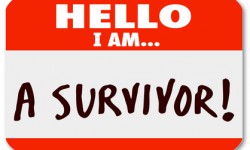
We all have dreams, fantasies, ambitions, goals. A cancer diagnosis for ourselves or our loved ones is not a part of any of these things. No one includes a devastating illness in the mix when they are charting their course to a happy and fulfilled life. But for millions of people, they must find meaning, purpose, and joy after cancer treatment and as they adjust to living with cancer. It is part of Issels® Integrative Immuno-Oncology’s comprehensive treatment method to help our patients live both a long and fulfilled life.
Struggling after surviving
Cindy Finch is a columnist and self-proclaimed Professional Cancer Survivor. She shares how frustrating it was for her to tell her oncologist about panic attacks, mood swings, and sleeplessness, only to be dismissed and told to be grateful she was alive. While Cindy is grateful to the medical community for helping her overcome her cancer. She feels they should do more to help patients with the mental and emotional trauma it can bring.
Psychotherapy can help
For many cancer survivors, the time after cancer treatment is one of the most difficult of their lives. Psychosocial care from trained professionals who understand the needs of cancer patients is essential. If your treatment facility does not have this help available, be sure you find proper psychosocial health care and help spread the word about this important need.
At Issels® Integrative Immuno-Oncology, we specialize in personalized non-toxic treatment therapies and cancer vaccine protocols that utilize your own body’s immune system to combat cancer and prevent recurrences. We understand the importance and value of you. Contact us to learn more about our safe and effective methods.





